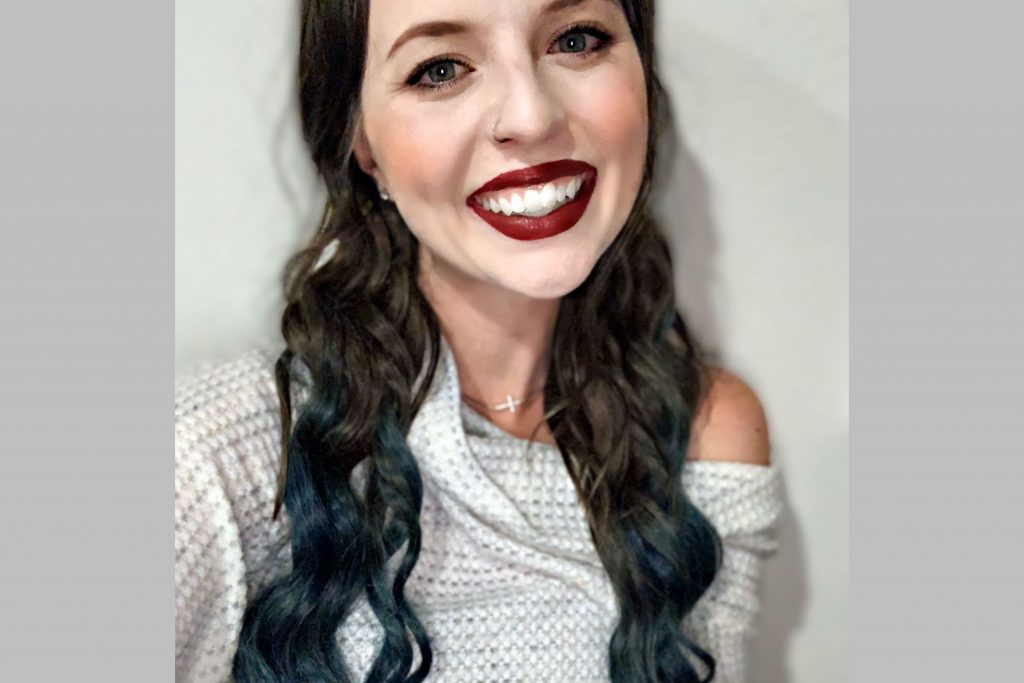We’re taking time to get to know the members of the GSA’s Early Career Scientist Committees. Join us to learn more about our 2020 early career scientist advocates.

Michelle Jonika
Career Development Subcommittee
Department of Biology, Texas A&M University
PhD Candidate
Research Interest
Sex chromosomes, which are chromosomes that segregate differently among the sexes, have evolved independently across many lineages of plants and animals. The classic model of XY sex chromosome evolution begins with a pair of identical sex chromosomes, the X and the Y. Through a series of genetic processes there is a loss of functional gene content and eventual degradation of the Y chromosome over time. Despite an interplay of degradation and retention of the Y chromosome, a small region of homology—the pseudoautosomal region (PAR)—persists in most species. This region maintains recombination and is essential to facilitate proper pairing and segregation of the sex chromosomes during meiosis. When this pairing process fails, the result is offspring with either the loss or gain of a sex chromosome.
What happens to sex chromosomes once this region of homology becomes very small? Current technologies limit determination of the PAR to very expensive and time-consuming strategies that are not feasible to scale across the tree of life. My research focus is on finding bioinformatics methods that will allow us to identify the size of the PAR region across the mammalian tree of life. I plan to first develop bioinformatics methods that are better able to determine this feature of sex chromosomes in mammals, and then work to answer the question above applying my newly developed methodology across the mammalian tree of life. Ultimately, I hope to test outcomes that we do not currently have the data to investigate, which have been previously predicted for highly diverged sex chromosomes.
As a PhD-trained scientist, you have many career options. What career paths interest you the most?
My time in research thus far has allowed me to see the aspects of science I really enjoy and determine which skills and strengths from academia I can apply toward crafting a successful career in industry. I have realized that though I enjoy having a fluid schedule and the ability to impact students through teaching and outreach, I most enjoy having structure to my day and the ability to focus my time on only a handful of technical problems. Academia has given me a toolkit that I will use to set up good habits for my transition into industry, including time management skills, the ability to learn quickly, the ability to communicate and collaborate with others, and taking personal initiative to put my best work forward. I would enjoy a position in my future career where I can apply these skills and be in a fast-paced environment learning new and exciting things every day.
Something I also find important is a career that fosters a good support system. Ideally this would include both the ability to mentor and teach, as well as the opportunity to be mentored by others. I have enjoyed my mentoring impact while performing research, and I find that the ability to learn and teach others from diverse backgrounds allows both my mentee and myself to grow as people and produce great work. Overall, I hope to find a career where I can be a leader and engage with a collaborative team to accomplish goals and develop ourselves as scientists.
In addition to your research, how else do you want to advance the scientific enterprise?
As an early career scientist, I have seen how important science communication is to the progress of science. The more effort scientists take to share our research and knowledge with the public and scientific community at large, the more we can advance the progress of science in society as a whole. When scientists are able to effectively communicate their knowledge and research beyond their labs and universities and even to a broader non-scientific audience, it allows for knowledgeable dissemination of information and can influence legislation and regulation. As a science communicator, I hope to clearly and concisely facilitate discussion around the science and technology that impacts each of us every day so that we all can make informed, science-backed decisions about our health and environment, among other things. Building a multi-directional connection between scientists and our communities is important so both parties learn from each other to create a more scientifically literate future.
Connections and trust are built within each of our communities, and we as scientists can better tackle life-threatening events such as COVID-19 by ensuring that the general public has access to accurate and scientifically-backed resources. As the number of vaccine-hesitant and scientifically skeptical Americans increases, I believe it is our job as scientists to ensure we are properly educating those around us so each person has the proper resources in hand to make well-informed decisions. Through these dialogues and connections, we can continue to build greater trust between the public and the scientific community and help the public make more educated medical decisions.
As a leader within the Genetics Society of America, what do you hope to accomplish?
As a member of the Career Development Subcommittee, I am excited to work with other early career researchers to navigate career options and curate resources. I want to explore options in industry for my future career, and this committee has given me the opportunity to not only navigate these options for myself but also to bring this knowledge to other ECRs. In addition, the Career Development Subcommittee contributes blog pieces to the Decoding Life series, highlighting multiple career paths after a genetics PhD. As I contribute to this series, I hope to engage with professionals in diverse fields to add to an already excellent range of career paths. I also personally hope to accomplish learning how to conduct informational interviews and network with other scientists outside of my direct field. This will ultimately benefit not only the blog series but also my future career advancements as well.
Previous Leadership Experience
- Texas Genetics Society Board Member, Student Representative, 2020-2022
- Vice President Genetics Graduate Student Association, Texas A&M University, 2020-2021
- Graduate and Professional Student Government Program Representative, Texas A&M University, 2019-2020
- Southeast Texas Evolutionary Genetics and Genomics Conference Organizer, 2019
- Outreach and Recruiting Committee, Texas A&M University, 2019-Present































